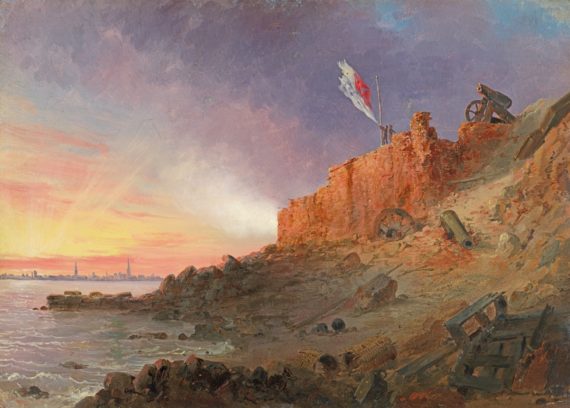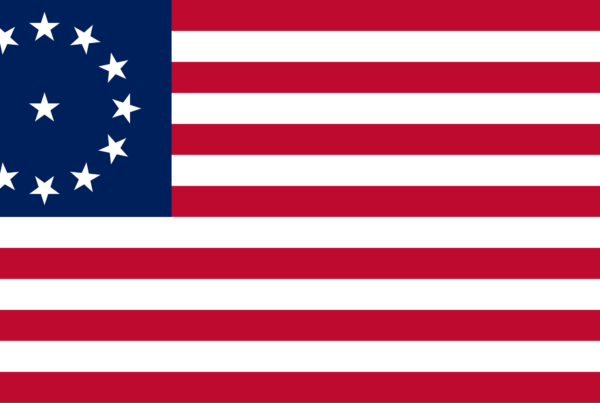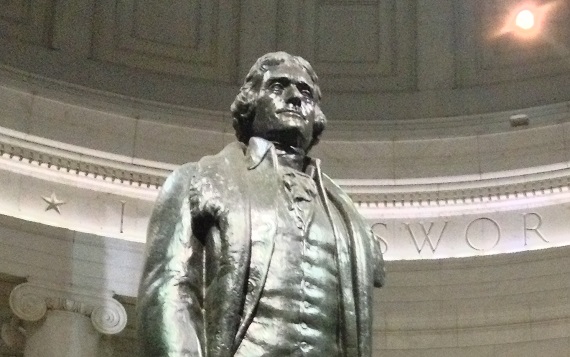
During the past thirty years most historians claim that slavery was the dominant cause of the Civil War. They increasingly insist that the South’s opposition to protective tariffs was a minimal factor, even though such tariffs were specifically outlawed in the Confederate constitution. Historian Marc-William Palen, for example, writes:
One of the most egregious of the so-called Lost Cause narratives suggests that it was not slavery, but a protective tariff that sparked the Civil War.
On 2 March 1861, the Morrill Tariff was signed into law by outgoing Democratic President James Buchanan. . . A pernicious lie quickly formed around the tariff’s passage, a lie suggesting that somehow this tariff had caused the US Civil War. By ignoring slavery’s central role in precipitating secession and Civil War, this tariff myth has survived in the United States for more than a century and a half – and needs to be debunked once and for all.
To begin, Palen fails to note that antebellum tariffs accounted for about ninety percent of federal revenues, even though most of his comrades readily conceded the point. Thus, tariff policy was as important to antebellum Americans as federal tax policy is to us today.
Beyond that, Palen falls into three traps that often entangle his fellow woke historians.
First, he equates the causes of Southern secession with the causes of the Civil War, but they are not the same. The North could have let the initial seven cotton states leave in peace as many leaders such as Horace Greely, Edwin Stanton and future President Rutherford Hayes were willing to do. There was no danger that the South would invade the North. War came only after the North decided to invade the initial seven cotton states. Thus, discovering the War’s causes requires an analysis of the North’s reasons for wanting to coerce the South back into the Union, instead of why the South seceded. The true goal that prompted Northerners to invade the South was to avoid the economic consequences of disunion.
Since the Confederate constitution outlawed protective tariffs, her lower tariffs would confront the remaining states of the truncated Union with two consequences. First, and foremost, a low Confederate tariff would cause Southerners to buy more manufactured goods from Europe as opposed to the Northern states where prices were inflated by protective tariffs. In 1866, for example, railroad iron sold for $80 a ton in America but only $32 in Britain.* Second, the federal government would lose much of its tax revenue since articles imported into the Confederacy would divert tariff revenue from the North to the South.
Palen’s analysis also falls into a second trap by arguing that rates were too low in 1861 to provoke a War, even if increased. Such arguments typically compare customs duties in 1860 to earlier years but ignore their steep and protracted rise during and after the War. It should be understood that the victors’ conduct after Appomattox better reveals his true motives for militarily subjugating the South than does his dubious rhetoric before the fighting began.

On the eve of the Civil War rates on dutiable items averaged 19% but thereafter averaged about 45% until Democrat Woodrow Wilson became President fifty years later in 1913. Although Wilson reduced rates, Republicans increased them after regaining control of the federal government in the 1920s. The GOP did not welcome free trade until after 1945 when the region north of the Ohio River and Mason-Dixon Line had virtually no competition anywhere since the economies of Europe and Asia had been wrecked by World War II.
A third Palen error is ignoring the adverse impact of import tariffs on domestic industries that export most of their output. There is no better example than American cotton, which normally exported 75% of its crop annually when the Civil War started. The dominant buyers were Britain and France, which typically obtained the exchange credits needed to pay for American cotton by selling finished manufacture goods to the United States. But high protective tariffs made it difficult for European manufactures to sell their goods competitively in the United States, as noted in the railroad iron example above.
The resulting shortage of exchange credits had two repercussions. One was to motivate European cotton buyers to seek new feedstock sources outside the United States. Thus, high domestic import tariffs invited other areas to compete with American cotton. Notable examples included Egypt, India, West Africa, and Brazil. The other result was to force Europe to buy less American cotton than otherwise thereby shrinking the market—or lowering the prices—for Southern farmers.
Such consequences lasted at least seventy years. When commenting upon a multiyear decline in cotton exports as late as 1935, for example, Assistant Treasury Secretary Oscar Johnston wrote, “The major cause of the decline is the inability of foreign consumers to obtain American exchange [currency.]” Southern farmers needed export markets, but what they got were American tariffs that drove their export customers to seek other sources.**
The myth that needs debunking is that the North went to war to end slavery whereas it truly went to war to avoid the economic consequences of disunion.
*Ira Tarbell, The Tariff in our Times, (Norwood, Mass.: Macmillan, 1911), 31
**David L. Cohn, The Life and Times of King Cotton, (New York: Oxford University Press, 1956), 238






I love the south.
GOD BLESS MATHEWS COUNTY, VA. THIS IS GOD ‘S COUNTRY HERE, NO RED LIGHTS, WE HAVE MORE
SHORE LINE THAN ANY OTHER COUNTY IN THE STATE OF VA. THERE IS ONE WAY INTO THE COUNTY AND
ONE WAY OUT OF THE COUNTY. SO YOU DON’T GET MUCH TRAFFIC HERE OR PEOPLE PASSING
THROUGHT. NO CRIME TO SPEAK OF, SCHOOLS ARE SAFE FOR CHILDREN AND TEACHERS. THIS IS THE
PLACE TO ENJOY LIFE. YOU MAY HAVE TO DRIVE A LITTLE BIT TO GET A JOB OR DO YOUR SHOPPING.
MY FAMILY LANDED IN GLOUCESTER COUNTY IN 1651, AND THEY HAVE FOUGHT IN EVERY WAR THIS
COUNTRY HAS BEEN IN. I HAD OVER 30 RELATIVES FIGHT IN THE WAR OF NORTHERN AGGRESSION.
THE WAY THIS COUNTRY IS TODAY IF VIRGINIA SUCEED FROM THE UNION I WOULD FIGHT FOR THE OLD
DOMINION. VIRGINIA WAS THE FIRST STATE TO HAVE A CONSTITUTION. REMEMBER WHAT JEFFERSON
SAID, MAYBE EVERY 20 YEARS YOU HAVE TO LET A LITTLE BLOOD. HE ALSO STATED THAT IF YOU WANT
FREEDOM YOU MAY HAVE TO OVERTHROWN A TYRANNICAL GOVRNMENT TO KEEP YOUR FREEDOM.
WHERE ARE THE GREAT LEADERS OF TODAY, LIKE THOMAS JEFFERSON, GEORGE WASHINGTON,
PATRICK HENRY, GEORGE MASON, RICHARD HENRY LEE, JAMES MOROE, JAMES MADISON, BENJAMIN
HARRISON, JOHN MARSHALL, AND EDMOND RANDOLPH. LOOK AT THE MEN THIS STATE PRODUCE AT
THE FOUNDING OF THIS COUNTRY, WHERE ARE THEY TODAY. VIRGINIA SHOULD TAKE THE LEED AGAIN
AND BRING THIS NATION OUT OF THE MESS IT’S IN. WE HAD SOME OF THE GREATES MILITARY MINDS
THAT EVER FOUGHT IN A WAR, ROBERT E. LEE, STONEWALL JACKSON, JAMES LONGSTREET, GEORGE
PICKET, A. P. HILL, JEB STUART, WILLIAM PENDLETON, JOHN B. MAGRUDER, ISSAC K. TRIMBLE, JAMES
L. KEMPER, D. D. HILL, AND, JUBAL A. EARLY. THEY STILL TEACH TACTICS OF LEE AND JACKSON AT THE
U. S. ARMY WAR COLLEGE. THESE WERE ALL GREAT LEADERS AND TODAY WE CANNOT FIND 1 GOOD
LEARDER IN ALL 50 STATES. GO BLESS OUR FOUNDING FATHERS FOR STEPPING UP TO THE PLATE
WHEN THEY WERE CALLED UPON. AND GOD BLESS EVERY ONE OF OUR SOLDIERS WHO FOUGHT
AND DIED TO BE FREE OF A TYRANNICAL GOVERNMENT. LONG LIVE THE OLD DOMINION
Men, repeat after me…ALL WARS ARE ABOUT SLAVERY…ALL WARS ARE ABOUT MONEY AND POWER.
The attempt at capturing the narrative…”WE FOUGHT THE WAR FOR A NOBLE PURPOSE” IS PREPOSTEROUS.
It’s simple. The CSA fought because they wanted to go their own way and yes, slavery had alot to do with it, and why not? SLAVERY WAS LEGAL, MORAL, ETHICAL, AND REPRESENTED THE WEALTH OF THE NATION. The USA fought because their cash cow was trying to wander off the reservation AND TO DESTROY AN ENEMY WHO POSSESSED THE WEALTH OF THE NATION.
Why did the northern States not buy the slaves to free them…or why did the federal government not do so?
The astute will say, “But the federal government DID buy slaves.” And the astute would be correct. The federal government bought house servants at 300 bucks each in 1862 from their owners in Washington City. Around 900 slaves, as I recall…check the details…no matter. THIS THEFT OF WEALTH EMPOWERED THE NORTHERN STATES.
So why not buy all the field hands and/or potential field hands at 1000 bucks each? Field hands are where the rubber met the road or more correctly Cotton was Crowned. Or just to be standard yankees with no eye for ever doing business with the same entity again and if so, always at an advantage to said entity…300 bucks per head? I say, man, the yankees were the market makers…so to speak…there was an anaconda wrapped around the former nation…BESIDES, THIS WOULD EMPOWER THEIR ENEMY.
WELL…as mentioned above, a LARGE percentage of the federal budget came from roughly one-third of the citizenry…any guess as to where that citizenry resided? You would be correct. So, 1/3 is footing the bill for the rest…and hence, the problem with DEMOCRACY, which as I recall, is NOT what we were promised…democracy empowered the yankee.
So, if the yankees did buy the slaves at their ripoff 300 bucks at 4 million souls that comes up to @ 1.2 billion dollars…but what did 1 billion dollars represent when the GDP of the entire US was 4 Billion dollars and the federal govt had a budget of @ 80 million? I tell you what it meant…it meant Abe was going to have to start being a bit dishonest to scare up that kind of wampum…maybe he could get some kind of unconstitutional income tax started…you know, just to put things into perspective since you CANNOT AVOID AN INCOME TAX AND THEREFORE YOU ARE EFFECTIVELY A SLAVE OF THE SOVEREIGN…at best a sharecropper.
Why did the South talk about slavery? BECAUSE SLAVERY WAS THE LAW OF THE LAND, LEGAL, COMPLETELY SUPPORTED BY THE CONSTITUTION… HOWEVER, WE HAD WILLINGLY SIGNED UP TO A CONSTITUTION THAT GAVE TAXATION POWERS TO THE HOUSE OF REPRESENTATIVES OR TO DEMOCRACY…DEMOCRACY WHEN YOU LIVE IN THE MALARIAL ZONE, AND NO ONE IN THEIR RIGHT MIND MOVES TO THE MALARIAL ZONE…at least not the millions fleeing: the potato blight; the 1848 communist exiles; those millions who wanted to get the heck out of Dodge for many untold reasons and now to go settle in the free lands being given away 160 acres at the time to flood the territories with people who did not own slaves…EMPOWERING THE YANKEE.
Slavery was not immoral, get over that. I mean it. GET OVER IT. You are arguing for your opponent when you try to deny slavery was a prime motivator because you think you yield moral high ground when you do so. EVERYONE OWNED SLAVES…the 5 Civilized Tribes, 10s of thousands of free negroes owned slaves…yankees owned slaves…there were 4 slave state in the United States during the war.
LINCOLN WOULD NOT ALLOW SLAVERY INTO THE TERRITORIES…THAT MEANT THE SOUTH WOULD NEVER BE ANYTHING OTHER THAN A PURSE FOR THE FEDERAL GOVERNMENT/northern states TO PLUNDER. The federal government didn’t give a rat’s about SLAVERY…IF IT DID, WHY DID IT PASS THE CORWIN AMENDMENT?
Read UP FROM SLAVERY by BT Washington…read ALL of it. Ask yourself why BTW loved his masters. Ask why he felt US blacks were the most blessed group of blacks in the world.
But you know this. And know this…your enemies do not care about the study of history…they just love to confuse and use idiots who don’t know any better.
Would be curious to know your thoughts on the “facts” put out by the site “www.deadconfederates.com” on tariffs, which is strenuously tries to argue tariffs were not that bad and that the South wanted more of them.